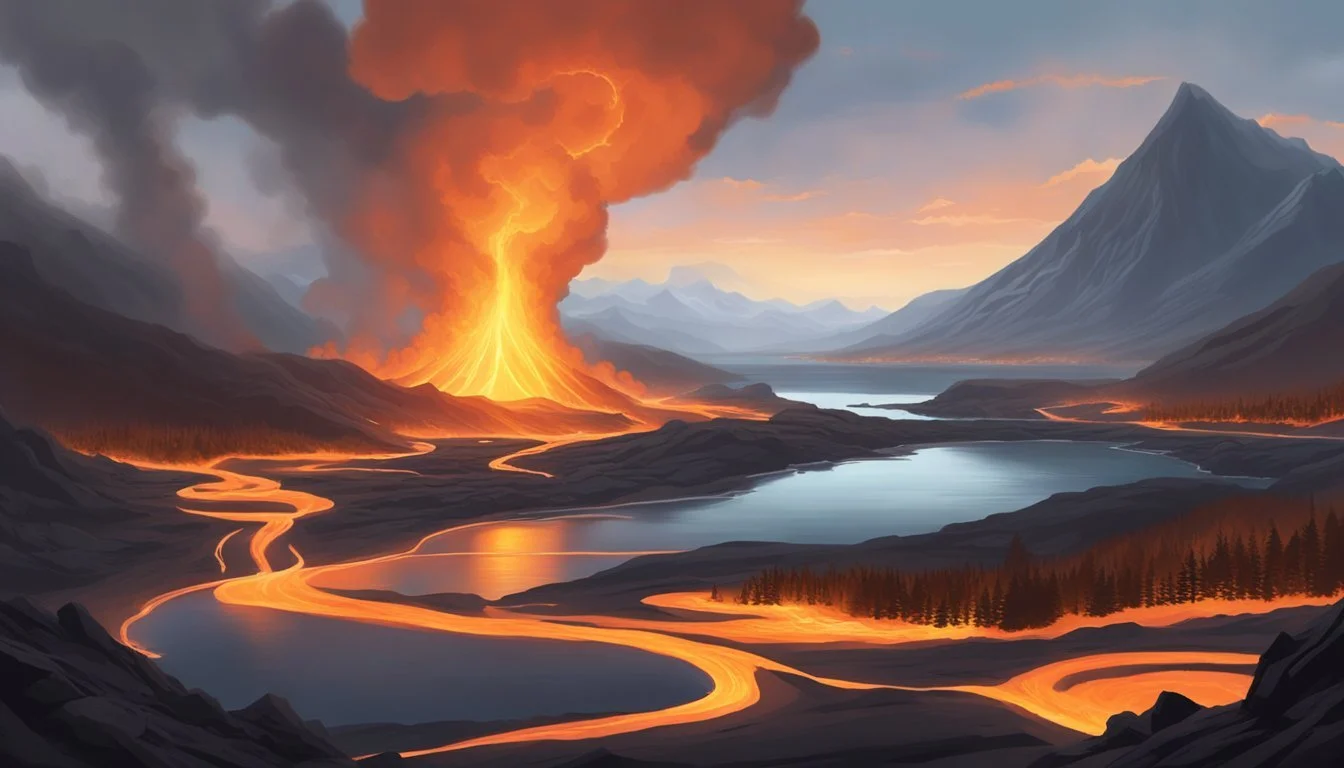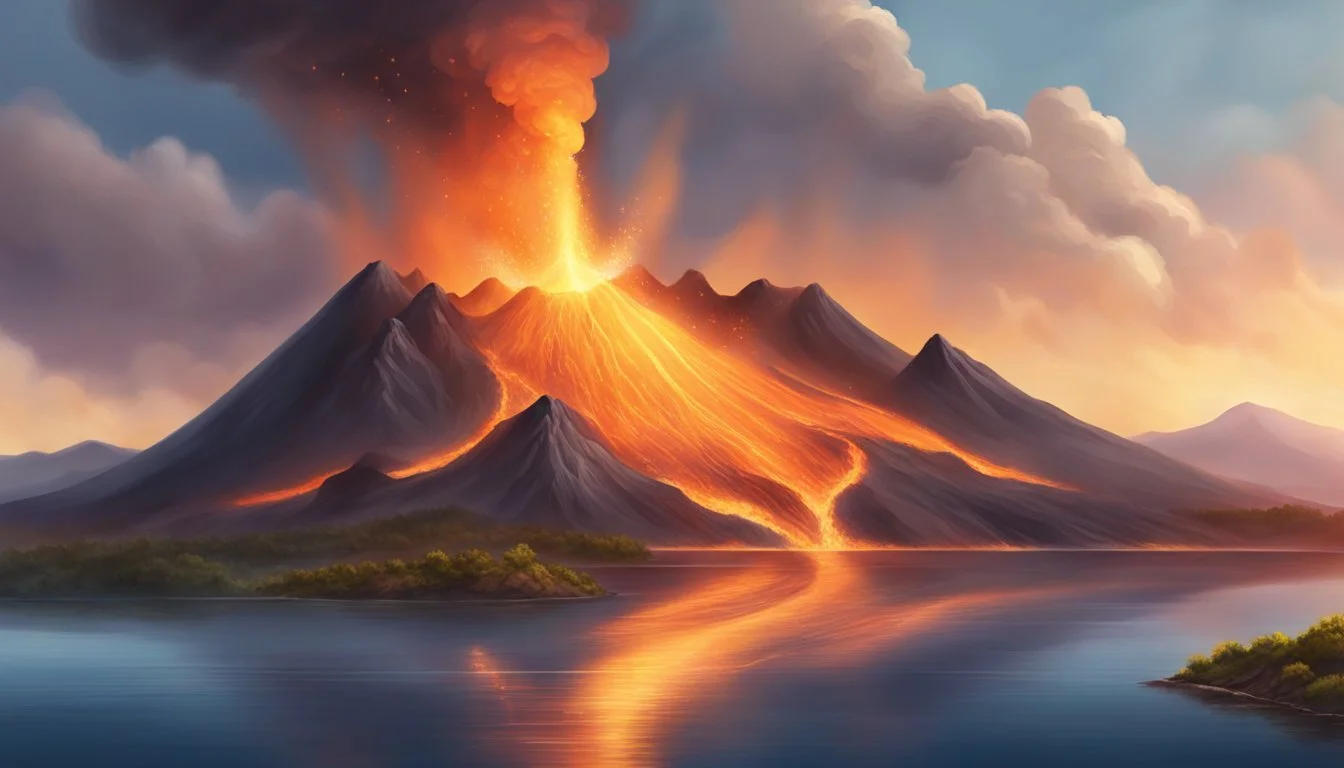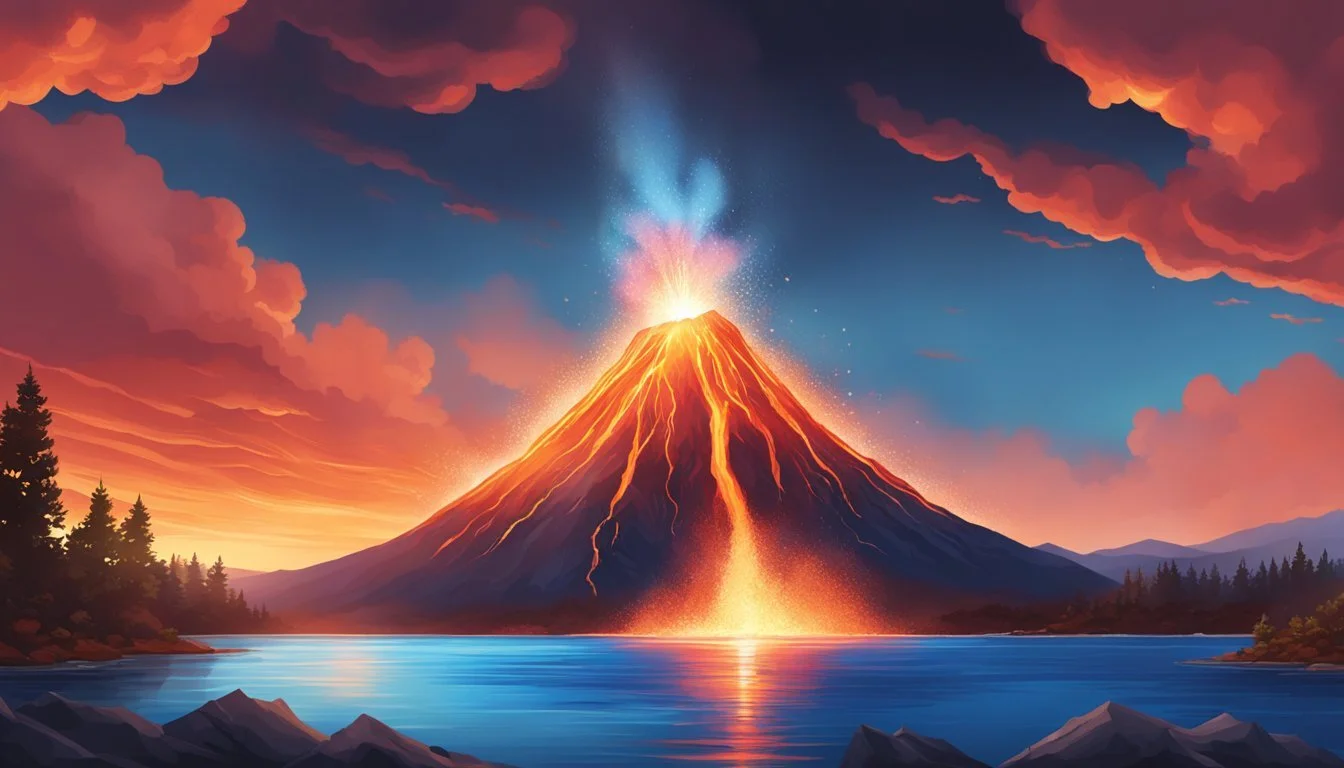Hawai’i Volcanic vs. Crystal Lake
Which Bottled Water is Superior?
Choosing the right bottled water can be a matter of personal preference or health considerations. Hawai’i Volcanic water is known for its naturally high alkaline pH level of 8.8, which helps neutralize acidity in the body. This can support various bodily functions and might be a significant factor for consumers looking for health benefits in their drinking water.
Crystal Lake, on the other hand, is praised for its clean, pure taste with no plastic aftertaste, which often makes it a crowd favorite. It aims to deliver a refreshing experience, free from unwanted flavors, making it a solid choice for those who prioritize taste in their bottled water.
For those prioritizing health benefits, Hawai’i Volcanic stands out with its high alkaline pH level, while Crystal Lake excels in providing a pure, refreshing taste. Both brands offer unique advantages, leading to a choice that ultimately depends on individual needs and preferences.
Origins and Source
Both Hawai’i Volcanic and Crystal Lake bottled waters have unique origins that contribute to their distinct qualities. Understanding these sources can help consumers make an informed choice.
Hawai’i Volcanic Origin
Hawai’i Volcanic sources its water from the Mauna Loa Volcano, located on the Big Island of Hawai’i. The origin lies in snowmelt and rainfall that filters slowly through the porous volcanic rock of Mauna Loa. This process allows the water to naturally collect minerals and electrolytes.
The Mauna Loa volcano is renowned for being one of the largest and most active shield volcanoes in the world.
The water then travels through rich, bio-diverse forest preserves. The family-owned deep well is surrounded by these lush areas, which help maintain the purity of the water. This location at the eastern base of Mauna Loa ensures a clean, sustainable water source.
Crystal Lake Source
Crystal Lake is sourced from a natural aquifer in the Midwest United States. The water originates from ancient glacial formations that have melted over millennia. This source is known for its pristine quality due to the depth and natural filtration provided by layers of porous aquifers and rock.
Unlike Hawai’i Volcanic, Crystal Lake's source is not volcanic but still benefits from geological features that enhance water quality. The aquifer system is protected from surface contamination, contributing to its purity. The water is then carefully extracted to ensure it retains its balanced mineral content.
This unique blend of geological conditions makes Crystal Lake water crisp and refreshing, appealing to those who prefer a different taste profile from volcanic water sources.
Water Quality and Composition
Water quality and composition are critical factors when evaluating bottled water brands. These elements determine the health benefits and overall consumer satisfaction.
Mineral Profile Comparison
Hawai’i Volcanic and Crystal Lake boast distinct mineral profiles that cater to various health needs.
Hawai’i Volcanic undergoes volcanic filtration, enriching it with minerals like silica, potassium, and magnesium. This natural process results in a high mineral content, making it ideal for those looking for water with added health benefits.
Crystal Lake, sourced from natural springs, contains a balanced mix of essential minerals such as calcium and sodium. Though it may not have the same volcanic origins, it provides a wholesome, well-rounded mineral content suitable for everyday hydration.
Here's a brief comparison of their mineral contents:
Mineral Hawai’i Volcanic (mg/L) Crystal Lake (mg/L) Silica 30 5 Potassium 15 10 Magnesium 20 8 Calcium 10 25 Sodium 5 20
Understanding pH Balance
pH balance is another crucial factor that influences the water's effect on the body.
Hawai’i Volcanic is naturally alkaline with a pH of around 8.0 to 8.5, attributed to its volcanic filtration. This higher pH level may help to neutralize acidity in the body, promoting overall health and wellness.
Crystal Lake water has a pH ranging from 7.0 to 7.5, classifying it as neutral. This makes it a safe choice for those looking for a balanced pH without the specific benefits of more alkaline water.
The pH balance of both brands is reflective of their unique filtration processes and sources, catering to different consumer preferences and health requirements.
Environmental Impact
When comparing Hawai'i Volcanic and Crystal Lake, their environmental efforts and choices in packaging play significant roles. Both brands emphasize sustainability but employ different strategies to minimize their ecological footprints.
Sustainability Efforts
Hawai'i Volcanic sources its water from natural volcanic processes on the slopes of Mauna Loa. This method ensures the water is sustainably sourced without depleting local resources. The company also emphasizes conservation through limited water extraction, tapping into less than 0.003% of the available supply.
Crystal Lake, on the other hand, focuses on renewable energy in its production facilities. By leveraging solar and wind power, Crystal Lake reduces its carbon footprint during the bottling process. Additionally, the company participates in various environmental restoration projects, contributing to the preservation of natural habitats.
Packaging and Recycling
Hawai'i Volcanic uses 100% recycled plastic for its bottles, reducing the need for new plastic production. This approach aligns with their mission to minimize environmental impact. The bottles are also designed to be fully recyclable, making it easier for consumers to dispose of them responsibly.
Crystal Lake opts for glass bottles, which are both reusable and recyclable. Glass, being a more environmentally friendly material, reduces plastic waste and promotes longer-term use. The company has also introduced programs that encourage customers to return used bottles for a discount on their next purchase, further promoting recycling and reuse.
In the realm of environmentally conscious choices, both Hawai'i Volcanic and Crystal Lake present commendable efforts. Hawai'i Volcanic's use of recycled plastic and minimal water extraction highlight their dedication to conservation, while Crystal Lake’s glass bottle initiative and renewable energy focus underscore their commitment to sustainability.
Health and Consumption
Hawai’i Volcanic and Crystal Lake offer notable health benefits for different types of consumers, including athletes and those considering their daily water intake. Both brands have unique compositions that cater to specific needs and preferences.
Benefits for Athletes
Hawai’i Volcanic boasts a natural blend of electrolytes, which are critical for hydration and muscle function. The presence of these electrolytes helps replenish lost minerals after intense physical activities, making it an excellent choice for athletes. The water also has a slightly alkaline pH, which may aid in neutralizing acid in the body.
On the other hand, Crystal Lake is praised for its purity and mineral content. While it may not have the same level of electrolytes as Hawai’i Volcanic, it is still effective in maintaining adequate hydration. This makes it suitable for average workout sessions where extreme electrolyte loss is not a concern.
Daily Intake Recommendations
For daily consumption, both Hawai’i Volcanic and Crystal Lake provide essential hydration. The Recommended Daily Intake (RDI) for water generally depends on individual needs, but an average adult should aim for approximately 2-3 liters per day. Hawai’i Volcanic’s alkaline nature may contribute to a better balance of the body's pH levels when consumed regularly.
Crystal Lake, known for its clean and mineral-rich profile, ensures that daily hydration needs are met without introducing any harmful substances. It’s a good choice for those who prioritize purity in their drinking water. Both types offer benefits that support daily hydration healthfully and effectively.
Brand Values and Community Influence
Both Hawai’i Volcanic and Crystal Lake emphasize their commitment to environmental sustainability and community support. They cater to customers who prioritize eco-friendly practices and impactful corporate actions.
Corporate Responsibility
Hawai'i Volcanic prides itself on its sustainable practices. The brand ensures that only 0.003% of water from the volcanic slopes is bottled, protecting the natural resources. Their partnership with Whole Foods Market reinforces their dedication to distributing an ethically sourced product.
Crystal Lake focuses on reducing its carbon footprint by using eco-friendly packaging and supporting local recycling initiatives. They emphasize the use of renewable energy in production and have plans to expand their sustainability efforts across all operations. Such initiatives help maintain their reputation as a socially responsible company.
Educational and Philanthropic Actions
Hawai'i Volcanic is deeply involved in giving back to the community through various educational programs. They offer educational opportunities about environmental conservation and the importance of clean water. Their Pump Aid initiative in Malawi, Africa creates access to clean water and promotes hygiene awareness. This reflects their commitment to global community support.
Crystal Lake funds several educational campaigns and local projects. They have installed water fountains in public areas and schools, improving access to clean drinking water. Efforts include partnerships with educational institutions to teach students about the importance of water conservation. These actions have cemented their role as a community-focused organization.
By remaining committed to these values, both brands effectively align their commercial success with positive community impact, demonstrating a balanced approach to corporate responsibility and philanthropy.
Product Range and Varieties
Hawai’i Volcanic offers a diverse selection of bottled waters, while Crystal Lake focuses on simplicity and accessibility.
Bottled Water Options
Hawai’i Volcanic provides still and sparkling water options. Their still water is naturally alkaline, filtered through volcanic rock, and rich in minerals. Bottled in various sizes, including 500ml and 777ml, it caters to convenience and bulk needs. The sparkling water, known for its purity and slightly acidic pH of about 5, provides a refreshing choice for consumers.
Crystal Lake offers purified water focusing on consistency and wide availability. Though it lacks the natural alkaline properties and volcanic filtering of Hawai'i Volcanic, it is competitively priced and easily sourced from multiple retail locations.
Comparing Costs and Accessibility
Hawai’i Volcanic waters are often found at premium grocery stores like Whole Foods and health food outlets, aligning with consumers seeking high-quality, natural sources. Prices can be higher compared to mainstream brands like Fiji or Evian, but the brand emphasizes sustainability and unique sourcing methods.
Crystal Lake, with its more straightforward purified water, is typically more affordable and accessible at common retail locations, making it a practical choice for everyday hydration. It competes on price rather than unique features, appealing to budget-conscious consumers who prioritize convenience and availability over specialized benefits.
Taste and Consumer Preferences
When comparing Hawai’i Volcanic and Crystal Lake, both brands have distinct taste profiles that cater to different consumer preferences.
Hawai’i Volcanic is known for its naturally alkaline properties, resulting from its filtration through volcanic rock. This gives the water a slightly bitter, yet unique taste. Many consumers appreciate this, especially when the water is chilled near freezing temperatures.
Crystal Lake, on the other hand, is a purified water brand. Purification processes can include methods such as reverse osmosis or distillation. These techniques aim to remove impurities, leading to a clean and neutral taste. Some people prefer this softer, more subtle flavor.
A blind taste test conducted previously involved various bottled water brands and offered insights on consumer preferences. The test indicated that people seeking a more distinct and mineral-rich profile leaned towards Hawai’i Volcanic. Those desiring a smoother and almost flavorless experience often favored Crystal Lake.
Here's a summarized taste preference comparison:
Brand Taste Profile Preferred by Consumers Hawai’i Volcanic Slightly bitter, unique, mineral-rich Bold, adventurous palates Crystal Lake Clean, neutral, soft Subtle, smooth palates
Consumer preferences in bottled water can vary widely based on individual taste. Hawai’i Volcanic's natural spring water offers a distinct profile, while Crystal Lake's purified water provides a cleaner, neutral option. Both brands highlight the diverse spectrum of bottled water tastes available to consumers.
Conclusion
When comparing Hawai'i Volcanic and Crystal Lake, several considerations arise that might influence a decision.
Health Benefits:
Hawai'i Volcanic: Boasts a naturally high alkaline pH of 8.8, beneficial for neutralizing acidity in the body and supporting critical functions.
Crystal Lake: Typically has a pH level around 7, aligning with most standard bottled waters.
Environmental Factors:
Hawai'i Volcanic: Extracts a minuscule 0.003% of its well's sustainable yield, indicating a focus on minimal environmental disruption.
Crystal Lake: Details on their environmental practices are less highlighted, requiring more research for an accurate comparison.
Sustainability:
Hawai'i Volcanic: Uses sustainable extraction and bottling practices onsite, showing a commitment to preserving natural resources.
Crystal Lake: Sustainability claims are not explicitly stated, warranting further investigation into their practices.
By examining these characteristics, consumers can make an informed choice based on health benefits, environmental impact, and sustainability practices. This comparison provides a clear understanding of what each brand offers.
More About Hawai’i Volcanic
Acqua Pana vs Hawaii Volcanic: Which Bottled Water is Better?
Antipodes vs Hawaii Volcanic: Which Bottled Water is Better?
Aqua Carpatica vs Hawaii Volcanic: Which Bottled Water is Better?
Arrowhead vs Hawaii Volcanic: Which Bottled Water is Better?
Boxed Water vs Hawaii Volcanic: Which Bottled Water is Better?
Castle Rock vs Hawaii Volcanic: Which Bottled Water is Better?
Core Hydration vs Hawaii Volcanic: Which Bottled Water is Better?
Deer Park vs Hawaii Volcanic: Which Bottled Water is Better?
Hawaii Volcanic vs 1907water: Which Bottled Water is Better?
Hawaii Volcanic vs Alkaline88: Which Bottled Water is Better?
Hawaii Volcanic vs Big Chill: Which Bottled Water is Better?
Hawaii Volcanic vs BodyArmor: Which Bottled Water is Better?
Hawaii Volcanic vs Cascade Mountain: Which Bottled Water is Better?
Hawaii Volcanic vs CBD Living: Which Bottled Water is Better?
Hawaii Volcanic vs Crystal Geyser: Which Bottled Water is Better?
Hawaii Volcanic vs Essence pH10: Which Bottled Water is Better?
Hawaii Volcanic vs Kirkland Signature: Which Bottled Water is Better?
Hawaii Volcanic vs Liquid Death: Which Bottled Water is Better?
Hawaii Volcanic vs Open Water: Which Bottled Water is Better?
Hawaii Volcanic vs Proud Source: Which Bottled Water is Better?
Hawaii Volcanic vs Pure Life: Which Bottled Water is Better?
Hawaii Volcanic vs Purely Sedona: Which Bottled Water is Better?
Hawaii Volcanic vs Richard's Rainwater: Which Bottled Water is Better?
Hawaii Volcanic vs Simple Truth: Which Bottled Water is Better?
Hawaii Volcanic vs Talking Rain AQA: Which Bottled Water is Better?
Hawaii Volcanic vs Weird Water: Which Bottled Water is Better?
Hawaii Volcanic vs Whole Foods 365: Which Bottled Water is Better?
Hawaii Volcanic vs Whole Foods Italian Still Mineral water: Which Bottled Water is Better?
Hawaiian Springs vs Hawaii Volcanic: Which Bottled Water is Better?
Ice Mountain vs Hawaii Volcanic: Which Bottled Water is Better?
Icelandic Glacial vs Hawaii Volcanic: Which Bottled Water is Better?
Just Water vs Hawaii Volcanic: Which Bottled Water is Better?
Mountain Valley Spring Water vs Hawaii Volcanic: Which Bottled Water is Better?
Nestle Pure Life vs Hawaii Volcanic: Which Bottled Water is Better?
Poland Spring vs Hawaii Volcanic: Which Bottled Water is Better?
San Pellegrino vs Hawaii Volcanic: Which Bottled Water is Better?
Smartwater vs Hawaii Volcanic: Which Bottled Water is Better?
Solan de Cabras vs Hawaii Volcanic: Which Bottled Water is Better?
Topo Chico vs Hawaii Volcanic: Which Bottled Water is Better?
Zephyrhills vs Hawaii Volcanic: Which Bottled Water is Better?
More About Crystal Lake
Aqua Carpatica vs Crystal Lake: Which Bottled Water is Better?
Cascade Mountain vs Crystal Lake: Which Bottled Water is Better?
Core Hydration vs Crystal Lake: Which Bottled Water is Better?
Crystal Geyser vs Crystal Lake: Which Bottled Water is Better?
Crystal Lake vs Essence pH10: Which Bottled Water is Better?
Crystal Lake vs Proud Source: Which Bottled Water is Better?
Hawaiian Springs vs Crystal Lake: Which Bottled Water is Better?
Ice Mountain vs Crystal Lake: Which Bottled Water is Better?
Icelandic Glacial vs Crystal Lake: Which Bottled Water is Better?
Kirkland Signature vs Crystal Lake: Which Bottled Water is Better?
Liquid Death vs Crystal Lake: Which Bottled Water is Better?
Mountain Valley Spring Water vs Crystal Lake: Which Bottled Water is Better?
Nestle Pure Life vs Crystal Lake: Which Bottled Water is Better?
Poland Spring vs Crystal Lake: Which Bottled Water is Better?
Purely Sedona vs Crystal Lake: Which Bottled Water is Better?
Richard's Rainwater vs Crystal Lake: Which Bottled Water is Better?
San Pellegrino vs Crystal Lake: Which Bottled Water is Better?
Simple Truth vs Crystal Lake: Which Bottled Water is Better?
Solan de Cabras vs Crystal Lake: Which Bottled Water is Better?
Talking Rain AQA vs Crystal Lake: Which Bottled Water is Better?
Whole Foods 365 vs Crystal Lake: Which Bottled Water is Better?
Whole Foods Italian Still Mineral water vs Crystal Lake: Which Bottled Water is Better?






